Avis de recrutement – Directeur/trice d'établissement de recherche
 L’institut français de recherche en Afrique (IFRA) à Ibadan, Nigéria cherche sa/son directeur.trice, poste à pourvoir à partir de septembre 2025.
L’institut français de recherche en Afrique (IFRA) à Ibadan, Nigéria cherche sa/son directeur.trice, poste à pourvoir à partir de septembre 2025.
 L’institut français de recherche en Afrique (IFRA) à Ibadan, Nigéria cherche sa/son directeur.trice, poste à pourvoir à partir de septembre 2025.
L’institut français de recherche en Afrique (IFRA) à Ibadan, Nigéria cherche sa/son directeur.trice, poste à pourvoir à partir de septembre 2025.
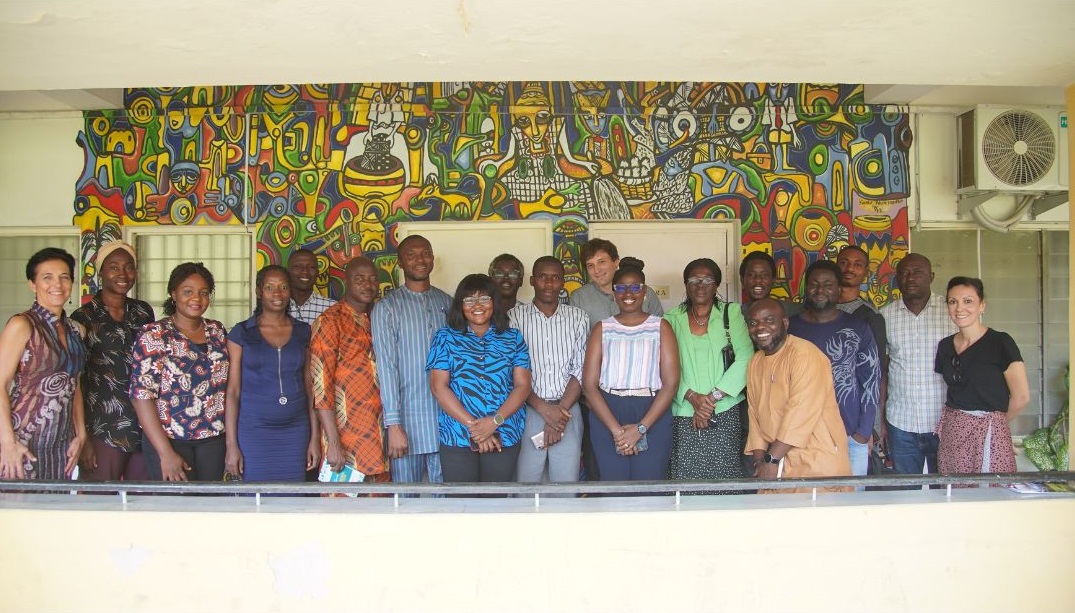 On 21 November 2024, Dr. Côme Salvaire, a researcher at Sciences Po Bordeaux & Research Institute for Sustainable Development, presented a methodological seminar titled: “What is a Case Study Good for?”, illustrating the logic of case study research with the results of an ethnographic study conducted from 2015 to 2024 around a garbage dump in Mushin, Lagos.
On 21 November 2024, Dr. Côme Salvaire, a researcher at Sciences Po Bordeaux & Research Institute for Sustainable Development, presented a methodological seminar titled: “What is a Case Study Good for?”, illustrating the logic of case study research with the results of an ethnographic study conducted from 2015 to 2024 around a garbage dump in Mushin, Lagos.
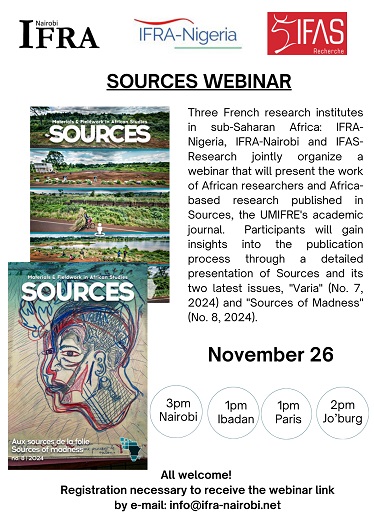
On 26 November 2024, three French research institutes in sub-Saharan Africa—IFRA-Nigeria, IFRA-Nairobi, and IFAS-Research— will organize a webinar to present the work of Africa researchers and Africa-based research published in Sources, the UMIFRE’s academic journal.
 Wednesday the 9th and Thursday the 10th of October 2024, Olufunke Adeboye (University of Lagos), Barbara Morovich (IFRA-Nigeria), Marième N’Diaye (CNRS-Les Afriques dans le Monde), Sara Panata (CNRS-Les Afriques dans le Monde) are organizing two study days in the context of the GLOW (Gender, Law and Political Activism in West Africa) project. The study days will take place in person at Sciences Po Bordeaux, more information about the program available here.
Wednesday the 9th and Thursday the 10th of October 2024, Olufunke Adeboye (University of Lagos), Barbara Morovich (IFRA-Nigeria), Marième N’Diaye (CNRS-Les Afriques dans le Monde), Sara Panata (CNRS-Les Afriques dans le Monde) are organizing two study days in the context of the GLOW (Gender, Law and Political Activism in West Africa) project. The study days will take place in person at Sciences Po Bordeaux, more information about the program available here.
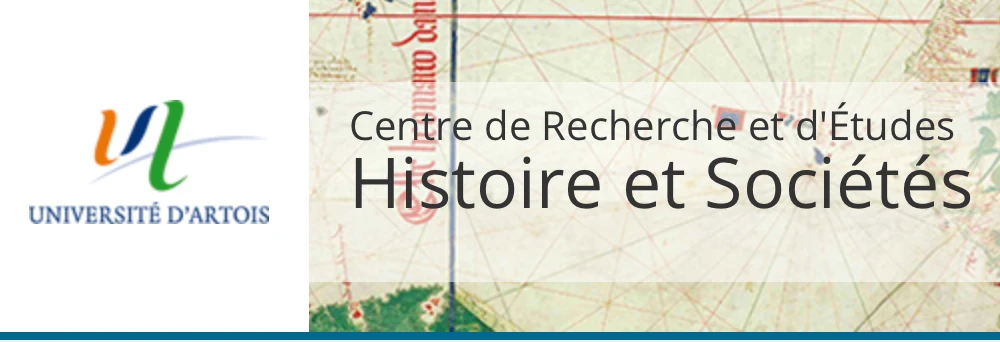 Le 27 septembre, Barbara Morovich, directrice de l’IFRA-Nigeria a prit part au colloque 'Patrimoines invisibles : processus, formes et narrations' se déroulant du 26 au 27 septembre entre Arras et Amien. Barbara Morovich et Judith Hayem ont présenté leur article intitulé : « Le visible et l’invisible dans les mémoires des mines en Afrique du Sud » dans le cadre de leur participation à une table ronde intitulée « Effacements des traces patrimoniales dans l’espace public ».
Le 27 septembre, Barbara Morovich, directrice de l’IFRA-Nigeria a prit part au colloque 'Patrimoines invisibles : processus, formes et narrations' se déroulant du 26 au 27 septembre entre Arras et Amien. Barbara Morovich et Judith Hayem ont présenté leur article intitulé : « Le visible et l’invisible dans les mémoires des mines en Afrique du Sud » dans le cadre de leur participation à une table ronde intitulée « Effacements des traces patrimoniales dans l’espace public ».
 Youssef Bouri, Research Project Manager at IFRA-Nigeria, recently published a report for the Centre for Democracy and Development titled "
Youssef Bouri, Research Project Manager at IFRA-Nigeria, recently published a report for the Centre for Democracy and Development titled "
 On the 26th of August, Femi Olanrewaju presented his research at the launching event of the Alternative Heritage program in Ibadan coordinated by The Republic, StoryMi Academy and the French Embassy in Nigeria. This creative workshop brought together a group of eleven creatives, including writers, photographers and illustrators from every region of Nigeria to meet with mentors, Diana Ejaita, Dipo Faloyin, Andrew Esiebo, and The Republic’s editor, Wale Lawal.
On the 26th of August, Femi Olanrewaju presented his research at the launching event of the Alternative Heritage program in Ibadan coordinated by The Republic, StoryMi Academy and the French Embassy in Nigeria. This creative workshop brought together a group of eleven creatives, including writers, photographers and illustrators from every region of Nigeria to meet with mentors, Diana Ejaita, Dipo Faloyin, Andrew Esiebo, and The Republic’s editor, Wale Lawal.
 Jennifer Lorin (Uppsala University, Sweden) visited IFRA-Nigeria between July and August 2024 thanks to an Islamology grant. The French Ministry of Europe and Foreign Affairs and the UMIFRE network (of which IFRA-Nigeria is part) support young researchers in the field of Islamology by offering field grants to doctoral students and young PhDs pursuing research in this field.
Jennifer Lorin (Uppsala University, Sweden) visited IFRA-Nigeria between July and August 2024 thanks to an Islamology grant. The French Ministry of Europe and Foreign Affairs and the UMIFRE network (of which IFRA-Nigeria is part) support young researchers in the field of Islamology by offering field grants to doctoral students and young PhDs pursuing research in this field.
 Le 25 Juillet 2024, Delphine Manetta, anthropologue et et directrice adjointe de l'IFRA-Nigeria, a publié dans la collection Connaissance des Hommes (L'Harmattan) un ouvrage sur ses recherches au sud-ouest du Burkina Faso. Par sa richesse ethnographique et sa profondeur historique, elle propose une analyse renouvelée des enjeux politiques contemporains en Afrique de l’Ouest, nés dans le sillage de la décentralisation. En étudiant la place de la parenté, des générations, de l’amitié, de l’origine, du genre et du don dans la transformation du pouvoir, il montre en quoi les circulations des personnes et des richesses façonnent les dynamiques politiques au Burkina Faso.
Le 25 Juillet 2024, Delphine Manetta, anthropologue et et directrice adjointe de l'IFRA-Nigeria, a publié dans la collection Connaissance des Hommes (L'Harmattan) un ouvrage sur ses recherches au sud-ouest du Burkina Faso. Par sa richesse ethnographique et sa profondeur historique, elle propose une analyse renouvelée des enjeux politiques contemporains en Afrique de l’Ouest, nés dans le sillage de la décentralisation. En étudiant la place de la parenté, des générations, de l’amitié, de l’origine, du genre et du don dans la transformation du pouvoir, il montre en quoi les circulations des personnes et des richesses façonnent les dynamiques politiques au Burkina Faso.
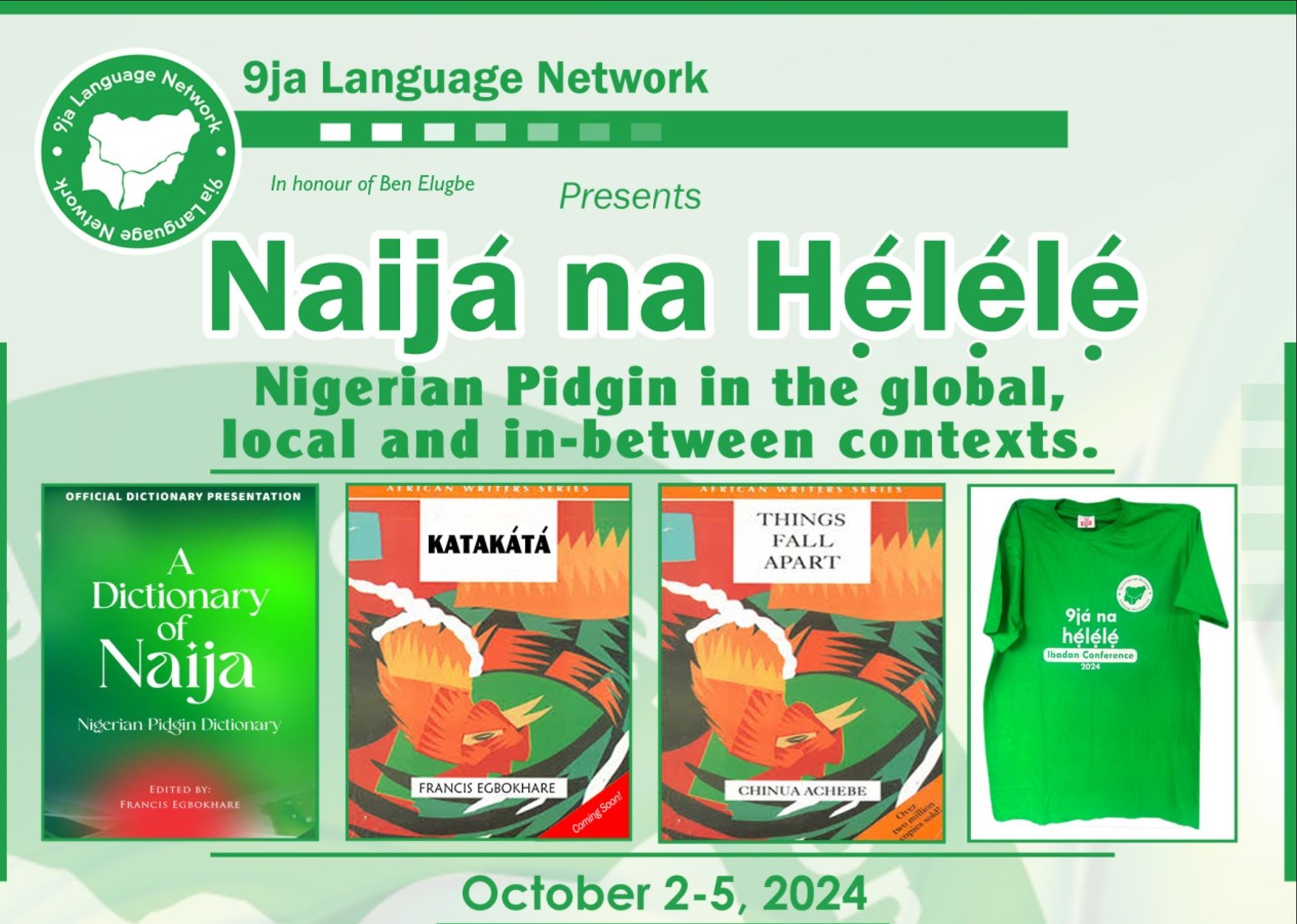 Between the 2nd and 5th of October the 9ja Language Network Conference took place at the Institute of African Studies of the University of Ibadan, IFRA-Nigeria is a sponsor of the event since many years. This conference was essential as Naijá (a.k.a. Nigerian Pidgin) has evolved over the last few decades to become the largest spoken and perhaps the most influential language in Nigeria. The current estimate of its speakers and users is placed at about 150 million with distribution across various continents.
Between the 2nd and 5th of October the 9ja Language Network Conference took place at the Institute of African Studies of the University of Ibadan, IFRA-Nigeria is a sponsor of the event since many years. This conference was essential as Naijá (a.k.a. Nigerian Pidgin) has evolved over the last few decades to become the largest spoken and perhaps the most influential language in Nigeria. The current estimate of its speakers and users is placed at about 150 million with distribution across various continents.
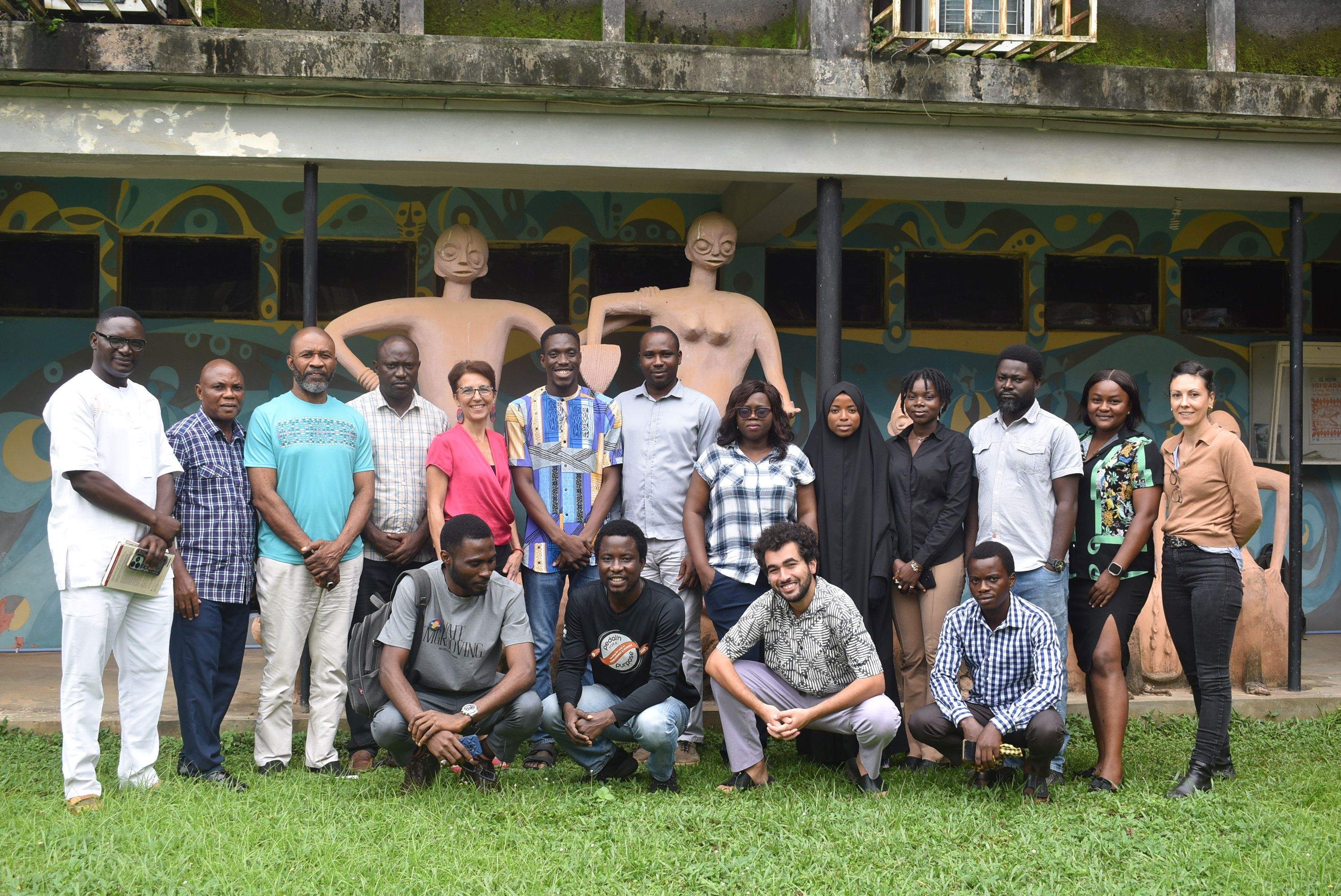
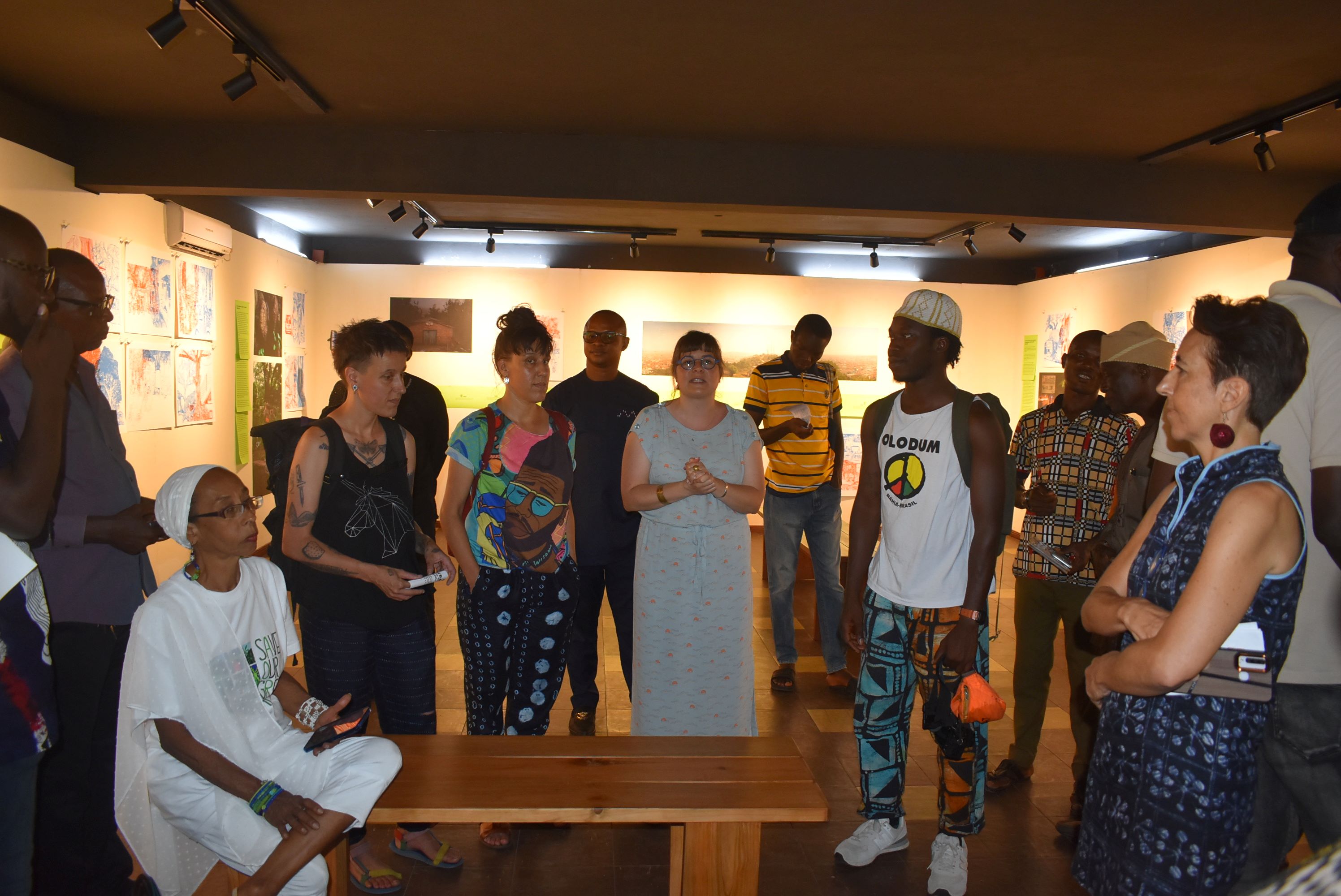 Between the 13th of June and 15th of July an exhibition titled “Igi'bàdàn. Living With Trees In Ìbàdàn. An Exhibition Between Arts And Science” took place at the Cornelius Adepegba Museum of African Art inside the Institute of African Studies of the University of Ibadan. The exhibition gathered works conducted since 2017, with the visual artists Delphine and Elodie Chevalme, and from 2022 with the photographer Obáyomí A. Anthony, Emilie Guitard (CNRS / Prodig) started a collaboration between arts (drawing, cyanotype, photography) and science (anthropology) in Ìbàdàn, in south-west Nigeria, on local knowledge and the relations of the inhabitants to the vegetation present in the city.
Between the 13th of June and 15th of July an exhibition titled “Igi'bàdàn. Living With Trees In Ìbàdàn. An Exhibition Between Arts And Science” took place at the Cornelius Adepegba Museum of African Art inside the Institute of African Studies of the University of Ibadan. The exhibition gathered works conducted since 2017, with the visual artists Delphine and Elodie Chevalme, and from 2022 with the photographer Obáyomí A. Anthony, Emilie Guitard (CNRS / Prodig) started a collaboration between arts (drawing, cyanotype, photography) and science (anthropology) in Ìbàdàn, in south-west Nigeria, on local knowledge and the relations of the inhabitants to the vegetation present in the city.
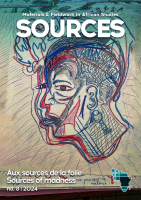 The eighth issue of Sources just came out and is accessible here.
The eighth issue of Sources just came out and is accessible here.
The contributions composing this special issue bring together historians and anthropologists to explore the daily realities of madness under and in the aftermath of colonialism. Drawing on institutional and personal archives, interviews and testimonies, observations and photographs, but also tackling absence and refusal, the six articles span French West Africa and contemporary Algeria, Gabon and Ghana, as well as colonial Algeria and the Upper Volta in the 1970s.
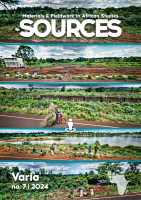 The seventh issue of Sources just came out and is accessible here.
The seventh issue of Sources just came out and is accessible here.
This latest issue consists of five articles from a range of different disciplines (history, theatre studies, political science, and geography), using various methodologies and materials (ethnographic immersion and observations, interviews, archival research, and digital tools) to provide original, polyphonic reflections on the demands of African fieldwork, from Tanzania to Angola, Guinea, Kenya, and Nigeria.
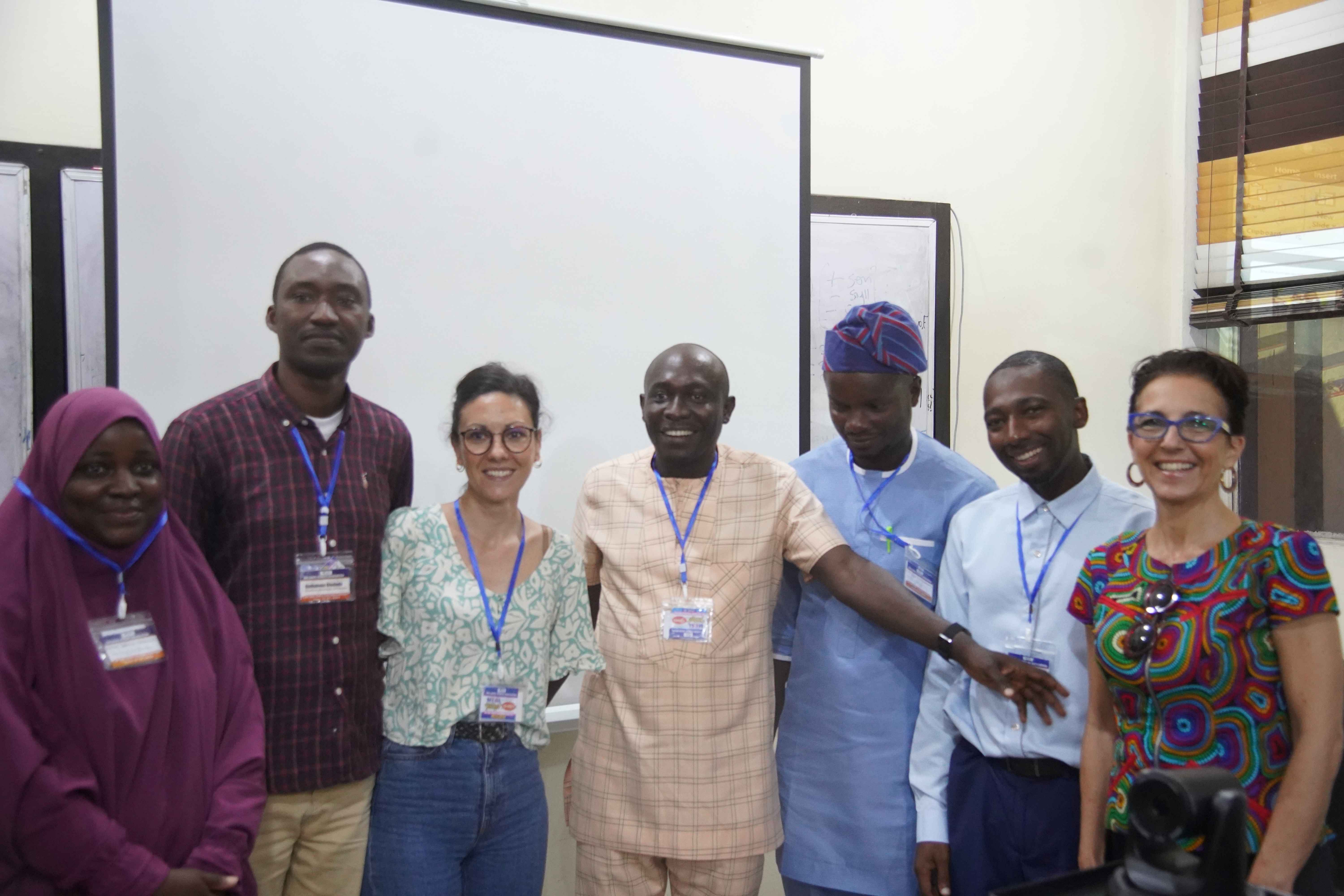
Social Media
Mailing List